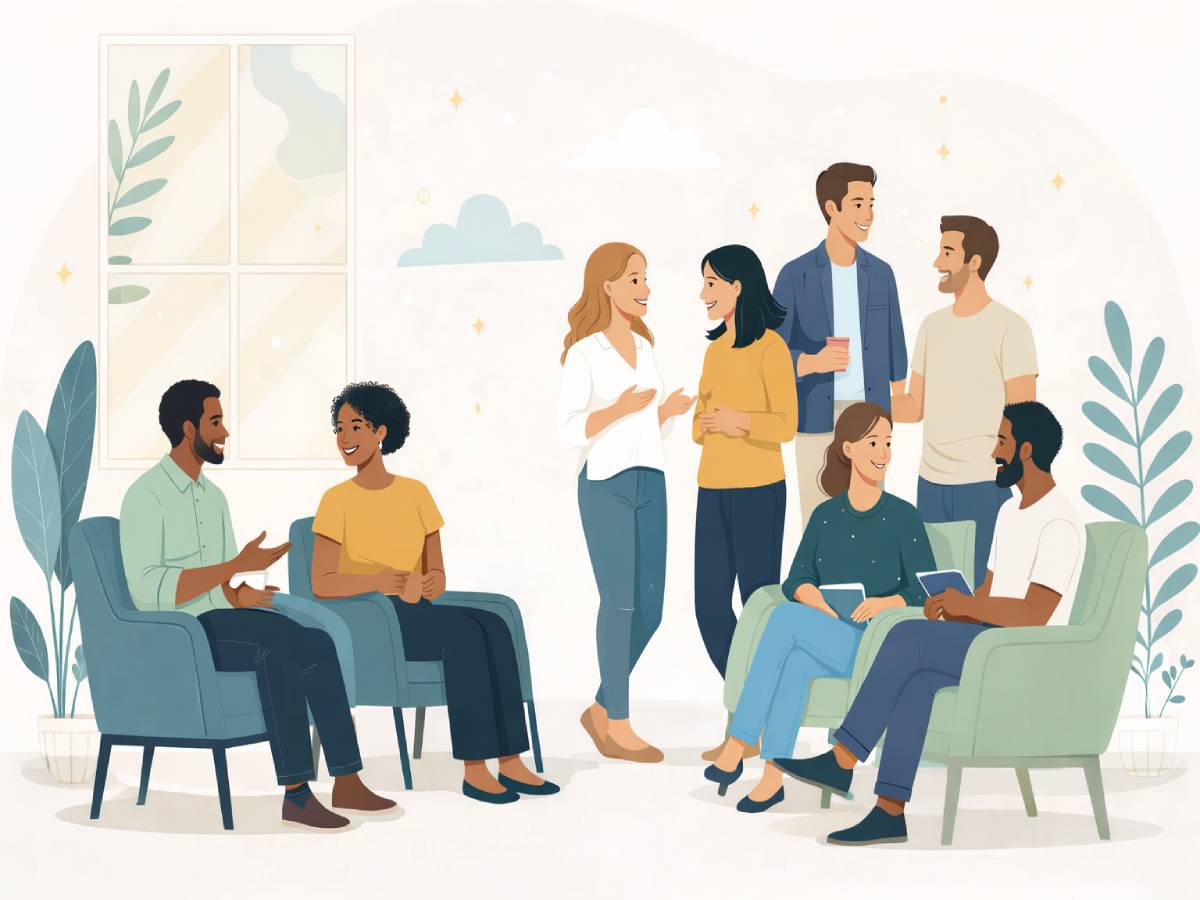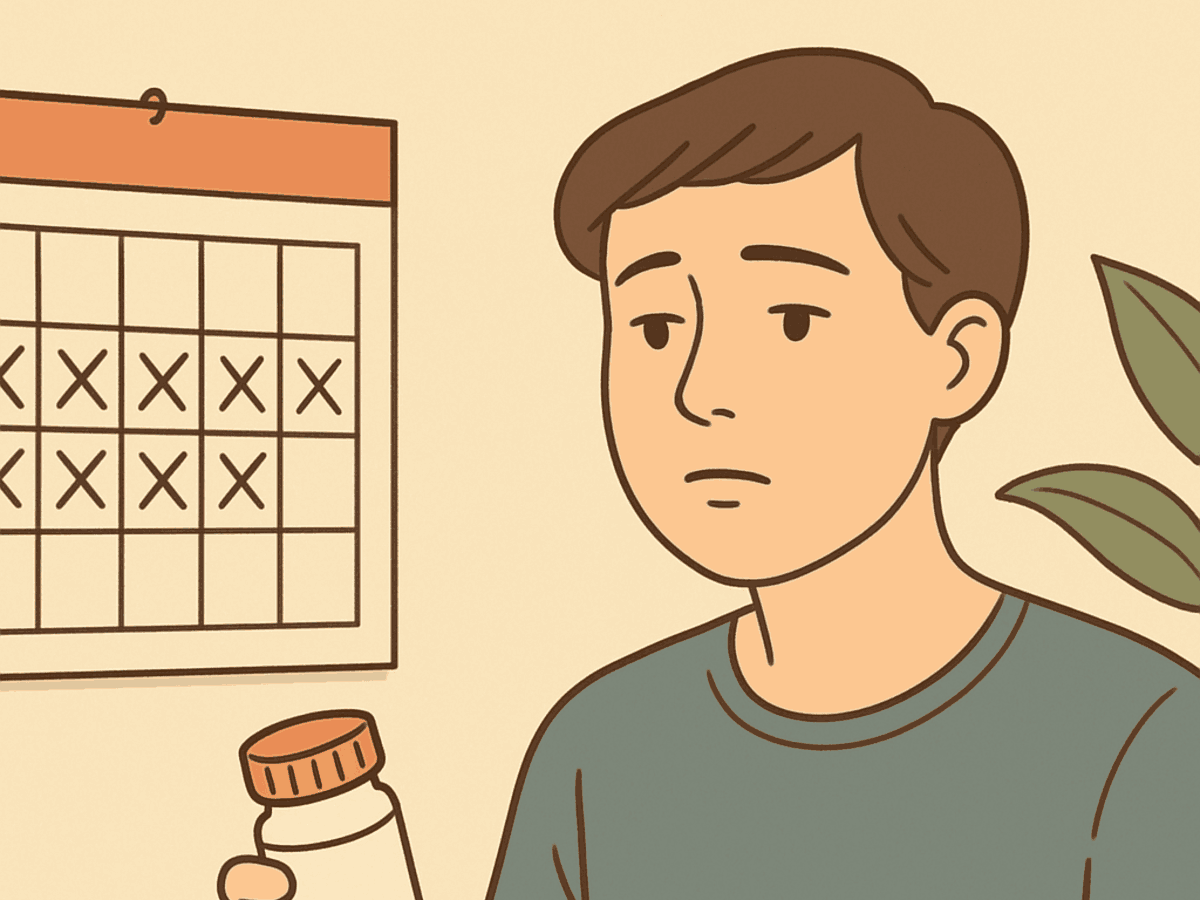Every day at Clear Path Psychiatry, we’re reminded that mental health care is deeply human work. Behind every diagnosis is a person with a story. People living with depression or thoughts of suicide deserve care, understanding, and support to find hope again.
In Seattle and across the Pacific Northwest, creating space for honest conversations about suicide prevention can truly save lives. We believe open dialogue about mental health is not only important but essential. We are honored to stand alongside our community in this meaningful work.
Why Suicide Prevention Conversations Change Everything
Over the years, we’ve seen a painful reality: suicide is still one of the leading causes of death in the United States even though it can often be prevented. Too many people continue to suffer in silence, not knowing that real help is available.
Talking openly about mental health allows people to share their struggles without shame. It reminds friends and families to check in on each other. And it helps build a culture where asking "Are you okay?" isn't awkward , it's normal.
Research has proven that when communities prioritize mental wellness and reduce stigma, people seek help earlier. And earlier help saves lives.
Recognizing When Someone May Be Struggling
Changes in mood or behavior can be easy to miss, especially when someone seems to be “holding it together.” Sometimes the signs are subtle: a friend who stops showing up for things they used to enjoy, a coworker who seems more quiet than usual, or a loved one who starts to withdraw.
These shifts can be early signs of depression or emotional distress. If you notice them, trust your instincts and reach out. A simple message or conversation can make a real difference.
When depression deepens, thoughts of suicide can sometimes follow. Knowing how to talk about it, and where to find help, can save lives. Talking about suicide does not cause it; it opens the door to understanding and support. Reaching out can be the first step in saving a life.
In general, suicide warning signs may show up as changes in mood, behavior, or daily habits.
Examples include:
- Talking about feeling hopeless, trapped, or feeling like a burden
- Withdrawing from friends, family, or activities once enjoyed
- Major changes in sleep, appetite, or energy levels
- Increased use of alcohol or substances to cope
- Expressing intense sadness, rage, or emotional pain
You do not have to have all the answers. Sometimes the most helpful thing you can offer is the simple act of listening.
Suicide Risk Factors
Certain life experiences can make someone more vulnerable to suicidal thoughts. Recognizing them isn’t about fear, it’s about meeting ourselves and others with extra compassion when life feels extra heavy.
Common suicide risk factors include mental health conditions, recent loss or trauma, chronic illness or pain, social isolation, and access to means of self-harm.
Examples include:
- History of depression, anxiety, or other mental health conditions
- Recent loss, trauma, or major life transitions
- Chronic pain or serious illness
- Social isolation or feeling disconnected from support systems
- Easy access to means of self-harm
How to Support Someone Who May Be Struggling

One of the most hopeful lessons we have learned is just how much difference simple human connection can make. You don’t need special training or the perfect words to help someone who is struggling.
The best ways to support someone include showing genuine care, listening without judgment, encouraging professional help, and staying consistently connected.
Here are some practical ways to make a difference:
- Start with genuine care.
A simple “I’ve noticed you don’t seem like yourself lately...want to talk?” can invite someone to open up. - Listen without rushing to fix.
Sometimes the most healing gift is being heard. Allowing someone the space to talk and be heard can ease isolation and help them feel understood. - Encourage professional help.
Offer to research local services or sit with them as they make the first call. Often, the hardest step is the very first one. - Stay consistently connected.
A quick check-in or a simple “thinking of you” text can remind someone they’re not walking their path alone.
Remember: You don’t need to have the perfect words or all the answers to make a difference, you just have to care enough to reach out. What matters most is showing someone they are remembered, reinforcing that they are not alone and reminding them their life has value.
For urgent support, dial 988 to connect with the Suicide & Crisis Lifeline, available 24/7.
And most importantly, if someone is in immediate danger, call 911.
If You’re Struggling: Finding Help and Hope for Depression
If you’re reading this and recognizing signs of depression in yourself, please know it does not have to stay this way. We have walked alongside hundreds of people who felt just as you may feel right now and we’ve watched them find their way back to joy.
If you’re struggling, the most important steps are reaching out for immediate support, talking to a professional, leaning on someone you trust, and exploring treatment options if standard therapies haven’t helped.
Here are some steps you can take today:
- Reach out for immediate support.
Call or text 988 (Suicide & Crisis Lifeline) to connect with someone trained to listen and help — available 24/7. - Talk to a professional.
Reaching out to a doctor or mental health provider can feel overwhelming, but it’s often the most powerful first step toward relief. - Tell someone you trust.
Whether it’s a friend, family member, or coworker, sharing your experience can lift some of the weight you’ve been carrying. - Consider specialized treatment options.
If therapy or medications haven’t been enough, there are other proven approaches. At Clear Path, we specialize in TMS therapy and Spravato treatment in a calm, supportive setting designed to help when hope feels distant.
You don’t have to figure this out alone or all at once. Taking even one small step toward help can open a path to healing you may not be able to see right now.
When Therapy or Medications Aren’t Enough: Finding Hope with Innovative Care
When someone walks through our doors, they often share the same story: “I’ve tried therapy, I’ve tried medications, but I still feel stuck.” If that sounds familiar, you are exactly who we are here for.
Treatment-resistant depression doesn’t mean untreatable depression.
Advances in interventional psychiatry offer new ways to target the brain, restore balance, and provide relief where traditional approaches fall short.
At Clear Path, we specialize in:
- Evidence-based innovation. Treatments like TMS and Spravato® are FDA-approved, backed by rigorous research, and endorsed by national psychiatric guidelines.
- Personalized care. We take the time to understand not just your symptoms, but your story, tailoring each treatment plan to your unique needs.
- Compassionate environment. Healing happens best in a calm, supportive setting where you’re truly seen as a whole person — not just a diagnosis.
If you’ve tried therapy and medications without enough relief, please know there are other proven paths forward. Hope is not lost.
TMS Therapy in Seattle: A Different Path Forward for Depression
TMS (Transcranial Magnetic Stimulation) is an FDA-approved, non-invasive treatment for depression that can bring relief when medications haven’t worked.
TMS (Transcranial Magnetic Stimulation) has become one of our favorite treatments to offer, not because it's high-tech, but because of the conversations we get to have weeks later. Little gems like hearing a patient say, "I forgot what it felt like to actually enjoy my morning coffee." These changes aren’t mysterious. They are the result of targeted brain stimulation that helps reset mood pathways.
The research is compelling: about 50–60% of people with treatment-resistant depression respond to TMS, with roughly one-third achieving full remission.
But beyond the statistics, what we see is people rediscovering parts of themselves they thought were gone forever.
Spravato® Treatment in Seattle: A New Approach for Depression
Spravato® (esketamine) represents one of the most significant advances in depression treatment in decades. Approved by the FDA in 2019 for adults with treatment-resistant depression, and more recently recognized in early 2025 for its standalone effectiveness, works differently from traditional antidepressants. Instead of targeting serotonin or dopamine, it acts on the brain’s glutamate system, helping repair and strengthen neural connections involved in mood regulation.
For many patients, that difference really matters. We’ve seen people who have struggled for years begin to feel relief, sometimes within days after starting treatment.
Clinical studies show that roughly two-thirds of patients experience meaningful improvement after a full treatment course.
At Clear Path Psychiatry, Spravato® sessions take place in a calm, supportive environment with continuous monitoring and compassionate care. Patients are encouraged to rest, reflect, or listen to music or meditations during treatment. It’s not a rushed or clinical process. Each session allows time for comfort, safety, and genuine healing to unfold.
Spravato® offers more than symptom relief; it offers a chance to reconnect with life again.
Why Clear Path Psychiatry is Different
Clear Path Psychiatry is different because we combine innovative treatments with personalized, compassionate care:
We take time to get to know you. Not just your symptoms or diagnosis, but who you are as an individual with your own unique story. What are your goals? What does a good day look like for you?
Our integrative approach means we’re not just treating depression, we’re partnering with you to reclaim your life. Through TMS therapy, Spravato® treatments, or other innovative options, we’re committed to finding what works for you.
At Clear Path, care is personal. Our team blends evidence-based approaches with compassion and respect for each person's journey.
Suicide Prevention Resources in Seattle
The Pacific Northwest has a strong network of people and programs ready to help anyone facing mental health challenges. Alongside Clear Path Psychiatry, you’ll find local and national services that offer care and connection when it’s needed most:
Immediate Crisis Support
If you or someone you know is in crisis, dial 988.
- 988 Suicide & Crisis Lifeline — Call or text 988 anytime, or use online chat. National 24/7 support for all ages.
- Crisis Connections (WA): crisisconnections.org | 866-427-4747 — 24/7 support in King, Pierce, Clark, Skamania, Klickitat, Grant, Okanogan, Chelan, and Douglas Counties. Includes Teen Link and WA Warm Line.
- Crisis Text Line: Text 741741 — Connect to a trained counselor via text, 24/7.
- 🏳️🌈 The Trevor Project: 866-488-7386 | Text 678678 | thetrevorproject.org/webchat — Crisis and suicide prevention support for LGBTQ+ youth.
- Veterans Crisis Line: Call 800-273-8255 and press 1 — 24/7 confidential support for veterans, service members, and their families.
- WA Recovery Helpline: 866-789-1511 — Anonymous, confidential support for mental health, substance use, and problem gambling (operated by Crisis Connections).
Local Support & Education
- 2-1-1 Resource Line: Dial 211 — Connects to statewide resources for food, clothing, shelter, and other essential services.
- NAMI Seattle: namiseattle.org — Free peer-led support groups, classes, and education for individuals and families.
- Sound Health: sound.health — Community-based mental health and addiction services across King County.
- Teen Link: teenlink.org | 866-833-6546 — Teen-answered hotline (6–10 PM PST), plus text and chat support (6–9:30 PM PST). Offers the Where to Turn for Teens resource guide.
- The Warm Line: 877-500-9276 — Peer support line, answered by people with lived experience. Open 9 AM–10 PM daily.
- 🏳️⚧️ Trans Lifeline: 877-565-8860 — Peer support hotline run by and for trans people, available 24/7.

Alongside these immediate supports, even small acts of compassion can save lives.
“Connection saves lives.”
Research shows that even simple, caring messages sent after a crisis can reduce suicide risk. Known as “caring letters,” this approach reminds people they’re valued and not alone.
The landmark study found these letters reduced suicide deaths by 50%. At Clear Path Psychiatry, this reflects our belief that healing is not only about treatments like TMS and Spravato® but also about connection and compassion.
Your Story Isn’t Over Yet: A Closing Note of Hope
If you or someone you love is experiencing signs of depression or thoughts of suicide, we want you to know that help and hope are available. Help backed by science and offered with compassion.
At Clear Path, we believe that behind every case of treatment-resistant depression is someone who deserves to feel joy again, someone whose story isn't finished yet.
If you're reading this and wondering if things really can get better, they can. With proven treatments and a caring team that sees you as a whole person, not just a collection of symptoms, it truly is possible.
Your story matters. You matter. And we're here to help you write the next chapter.
Ready to take the next step? Visit our contact us page or call us today. We're here to listen, to understand, and to help you find your path forward. Together, we can create awareness, connection, and healing.













